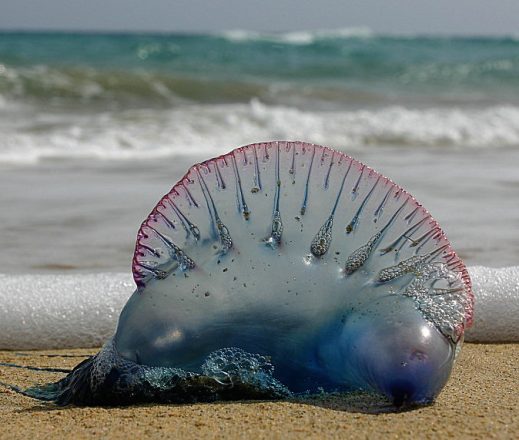Hundreds of poisonous ‘jellyfish’ have washed up on Bay of Plenty beaches after bad weather.
Reports of the blue creatures have come from Mount Maunganui, Pāpāmoa, Pukehina and Whakatāne.
Chris Battershill, professor of Coastal Science at the University of Waikato, said the jellyfish-like creatures were known as Portuguese man o’ war, or bluebottle, jellyfish. However, they were not actually jellyfish – the scientific name for them was Physalia.
“People do refer to them as jellyfish because of their appearance,” he said.
Their stings are extremely painful and can cause a red rash that can last for up to three days.
He said that the beaching of so many was rare but that it was consistent with recent unusual weather patterns.
“With the prevailing winds, they are often blown onto the beaches because of their bloated air-filled sacs.”
Many people think the best cure is to urinate on the sting. However, Mount Maunganui Lifeguard Service chair Jamie Troughton said this is not true.
“We’ve all heard the alternative treatments, but luckily urine has never been – and hopefully never will be – part of the lifeguard first aid kit… Bluebottle stings aren’t usually serious, unless the patient has an allergy, and are usually more nuisances than threats. What we recommend is getting rid of the tentacles as soon as possible, using gloves or cold water, then soak the sting site in water that is as warm as you can handle. Not only is that the current medical advice, but it’s probably a little more socially acceptable too.”




















































-360x245.jpg)









